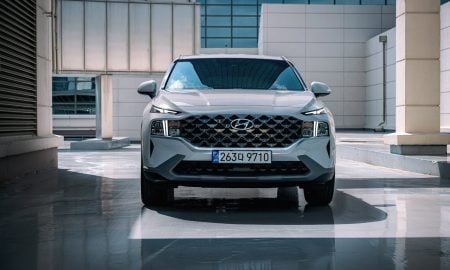
Are Subsidized Company Cars Blocking EV Growth in Germany?

Germany’s subsidized company car policy, where companies receive tax benefits to purchase vehicles, is significantly impacting the adoption of electric vehicles (EVs). Currently, a vast majority of company cars run on internal combustion engines, prolonging reliance on fossil fuels and slowing the shift to sustainable transportation. Given that company cars dominate business fleets, the country’s transportation sector faces challenges in reducing emissions.
The Prevalence of Company Cars
In Germany, two out of every three new cars registered in recent years were bought by businesses. Company cars used both for business and private purposes, often have higher fuel consumption and emissions due to increased mileage. Since companies cover fuel costs, employees typically drive these cars more frequently than private owners. Consequently, company cars contribute three-quarters of emissions from newly registered cars, making their environmental impact considerable.

Esmihel Muhammad | Pexels | In Germany, two out of every three new cars registered in recent years were bought by businesses.
Subsidies and Their Environmental Costs
The German government offers subsidies that favor premium vehicles, including fossil-fuel-powered company cars. These subsidies, amounting to €13.7 billion annually, are largely directed toward fossil-fuel cars, keeping them in circulation longer. The higher the purchase price, the greater the tax benefit, which incentivizes companies to purchase expensive vehicles, often heavy SUVs. This has led to a situation where one in three company cars in Germany is an SUV, a vehicle type known for its high emissions.
The Slow Adoption of EVs in Company Fleets
Despite Germany’s environmental goals, only 12% of new company car registrations in the first half of 2024 were fully electric. Some corporations are taking steps to promote EVs in their fleets, but progress remains limited. Deutsche Telekom, for instance, now requires all new company cars to be electric. However, such initiatives are rare, with companies like BASF and SAP maintaining a mix of hybrid and combustion-engine cars in their fleets.
While hybrid vehicles were intended to bridge the gap to full electrification, their environmental impact is debated. Many hybrids are rarely charged, running primarily on fossil fuel, which offsets their intended carbon savings. Without strong incentives to charge them, these vehicles end up having a heavier carbon footprint.
The Auto Industry’s Mixed Approach
Germany’s automotive industry stands to benefit from a shift toward EVs in company car fleets, as nearly 70% of their sales are to corporate clients. Therefore, major automakers like BMW and Volkswagen advocate for stronger electrification incentives. Yet, even among German carmakers, the commitment to fully transition company cars to electric remains limited. A recent report noted that only a third of BMW’s company cars are currently electric, highlighting the lag in adoption.
Subsidy Inequality and Potential Solutions
Subsidies for company cars largely benefit Germany’s top earners. According to the World Wildlife Fund, most company cars are used by employees with annual incomes above €80,000, raising questions about subsidy equity. Environmental advocates propose taxing vehicles based on CO2 emissions and promoting smaller EVs to address this. Additionally, providing benefits for sustainable alternatives, such as company bicycles and public transport passes, could ease both traffic congestion and parking shortages in German cities.
Challenges to the German Government’s Goals
Germany aims for net-zero carbon emissions in transportation by 2045. However, the continuation of subsidies for fossil-fuel-powered company cars conflicts with these goals. In 2023, EV subsidies for private individuals were scrapped, with Transport Minister Volker Wissing asserting that the EV market should stand independently. However, subsidies for corporate fossil-fuel cars remained untouched.
More inAuto News
-
`
Sutton Foster and Hugh Jackman Spark Romance on L.A. Date Night
Hollywood is abuzz with the latest photographs of Hugh Jackman and Sutton Foster, who appear to be confirming their romance during...
January 16, 2025 -
`
How to Fix Car Window Off-Track and Align It Properly
When your car window gets stuck or misaligned, it’s often due to an off-track issue. Learning how to fix car window...
January 10, 2025 -
`
How to Drive a Stick Shift: A Quick Guide for Manual Beginners
Driving a stick shift requires coordinating the clutch, brake, and accelerator to control a car with a manual transmission. Manual cars...
January 3, 2025 -
`
Why Drowsy Driving Is Just as Dangerous as Drunk Driving
Drowsy driving poses a serious risk to road safety, yet many underestimate its dangers compared to drunk driving. The National Sleep...
December 27, 2024 -
`
Where Is Hyundai Made? A Look Inside Global Manufacturing Hubs
Hyundai vehicles dominate roads worldwide, offering reliability and innovation. Yet, only some people know where these cars are actually made. The...
December 20, 2024 -
`
Why Am I Having Trouble Passing My Permit Test? Top Tips for Success
Failing the permit test can feel like a major setback, especially when you’ve put in the effort to prepare. The material...
December 20, 2024 -
`
Will America Follow Utah in Changing Its Drunk Driving Limit?
A growing number of states are considering lowering the drunk driving limit from the current standard of 0.08% blood alcohol concentration...
December 16, 2024 -
`
How Many Miles Is Good for a Used Car? Find Out Here
When buying a used car, one of the first questions that might pop into your mind is how many miles is...
December 12, 2024 -
`
Does Your Auto Insurance Cover Medical Expenses in Accidents?
Car accidents can lead to a range of unexpected challenges, from vehicle repairs to hospital visits. One of the most significant...
December 12, 2024
















You must be logged in to post a comment Login